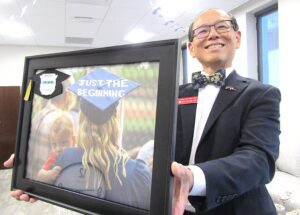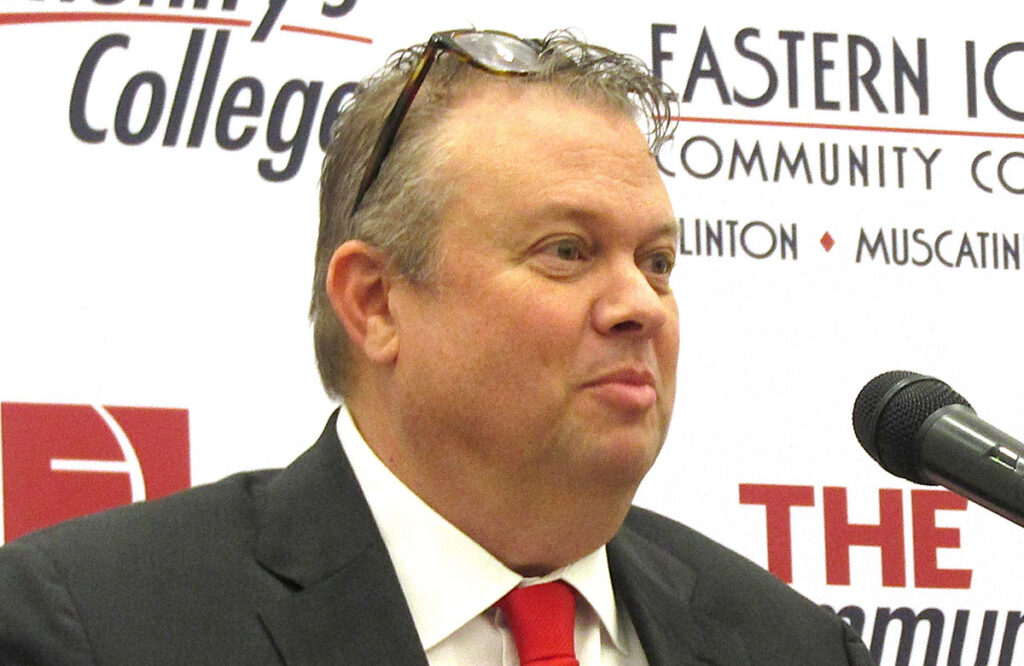Liang Chee Wee served the Quad Cities region admirably as interim chancellor for the Eastern Iowa Community Colleges (EICC) for almost two years after coming out of retirement. His selflessness and positive kinetic energy were a great transitional help for this important regional institution.
Now we are excited about the new EICC Chancellor Bryan Renfro establishing roots in the region and helping it shepherd the regional workforce. Mr. Renfro started on July 1.
He was president of John Wood Community College in Quincy, Illinois, prior to accepting this new position.
Running a community college is not an easy endeavor.
The average tenure for community college presidents has been decreasing. In 2022, it was 5.9 years, down from 8.5 years in 2006, according to a report from the American Council on Education. This decline reflects a trend of shorter leadership tenures across higher education, with many presidents leaving after only a few years.
Interestingly, both Mr. Wee, former president of Northeast Iowa Community College, and Don Doucette, former chancellor of EICC, each served 11 years in their leadership roles before retiring. They were well-regarded leaders who were unafraid to make bold moves to help move their institutions and regions forward.

While the length of a community college president’s tenure doesn’t necessarily determine an institution’s success, having a leader with a deep understanding of the region’s unique challenges, history and opportunities can make a significant difference. That familiarity helps leaders take informed risks and focus on the areas of greatest need.
Running a community college is complex because it serves as a vital bridge between K-12 education and workforce demands. These colleges occupy a critical space in the educational landscape, connecting students to career pathways and higher learning opportunities.
One advantage community colleges currently hold is that they have largely avoided the political backlash some public and private universities have faced in recent months and years. They have generally maintained broad support, particularly for their role in expanding access to alternatives to traditional four-year degrees, such as workforce training and certificate programs, which continue to have strong appeal.
We wish Mr. Renfro the best and hope that his tenure is not only long but also successful in creating partnerships, helping with the pipeline for our regional employers and making the region more unified.
Landbank is important
The Quad Cities Land Bank Authority is tackling one of the region’s toughest challenges: reclaiming vacant and abandoned properties. These “zombie” structures drag down neighborhoods and limit housing potential.
Progress has been slower than hoped, but as QCLBA Board Chairman Miles Brainard recently affirmed, “it isn’t going anywhere.” That persistence matters. Revitalizing abandoned properties takes time, resources and community support – but every lot cleared and every property rehabilitated opens the door to new housing and stronger neighborhoods.
The work is far from easy, but it is essential. We encourage local leaders, developers and residents to support the land bank’s efforts. These are the kinds of long-term investments that help neighborhoods thrive.







